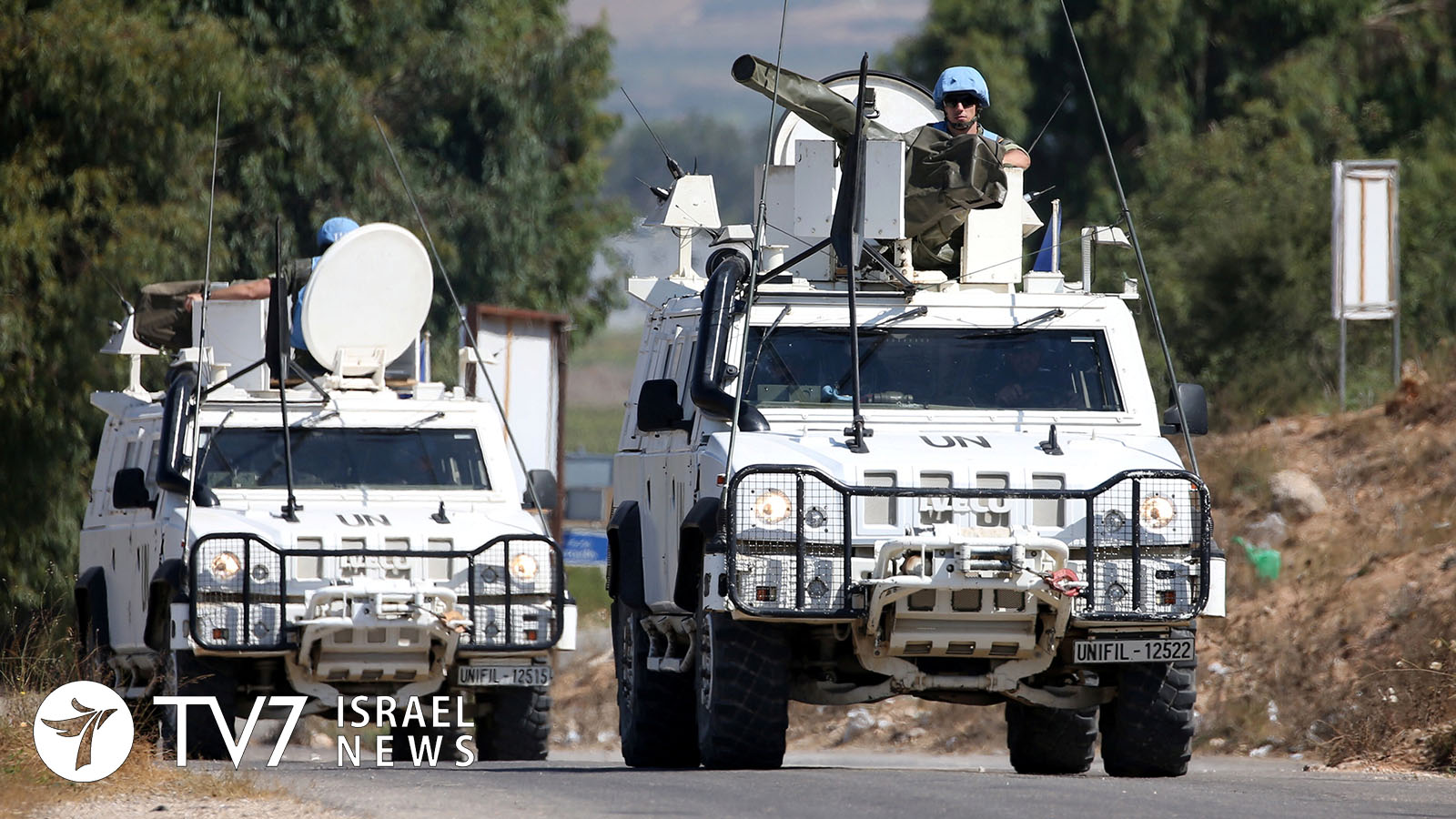The United Nations Security Council voted unanimously to extend the mandate of the UNIFIL United Nations Interim Force in Lebanon, by one year. The Israeli Foreign Ministry in Jerusalem responded with a statement expressing appreciation for the efforts by the United States and other countries, to strengthen the peacekeeping mission in South Lebanon, but pointed out that “restrictions posed by Hezbollah and the State of Lebanon on UNIFIL continue to significantly hinder the full and effective implementation of its mandate.” According to the statement, ‘If these restrictions remain in place, UNIFIL’s relevancy will remain in doubt.’
The Foreign Ministry also referred to new evidence, it referred to as “disturbing,” in which UNIFIL peacekeepers were assaulted by what the IDF claimed to be members of “Hezbollah.” The video purports to show two armored UNIFIL vehicles under attack in August of last year by assailants in civilian clothes at an entrance of a U.N. base in Majdel Zoun. One of the vehicles was lit on fire, after which the peacekeeping force was overpowered by the mob of alleged Hezbollah operatives. With regard to implicit limitations imposed on the UNIFIL mandate as indicated in the video, the Israeli Foreign Ministry said that “This evidence should have pushed those who care about the safety and stability of Lebanon to use this mandate renewal opportunity to take a stronger position on the fundamental issue of ensuring full access to the force.”
Meanwhile, the U.N. Security Council warned both Hezbollah and Israel that any violation of Resolution 1701, which effectively ended the Second Lebanon War in 2006, is liable to spark a new clash that none of the sides in the region could afford. As such, the 15-member state body called on all actors to display maximum restraint, and avoid any course of action or statement liable to undermine stability.
In addition to the discussions surrounding the tensions in Lebanon, the U.N. S.C. received a briefing from the world body’s Special Envoy for Syria, Geir Pedersen. After addressing domestic challenges of the war-torn Arab Republic, Pederson also addressed rising tensions between Israel and Iran, which he referred to as ‘extremely worrying,’ and urged both countries to respect the sovereignty of Syria and all other states in the region.
